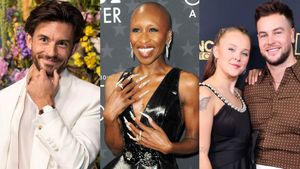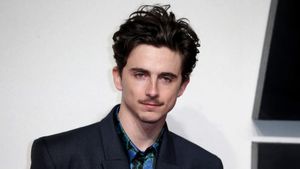Shortly after Donald Trump's inauguration as president, his staff removed all history of the civil rights movement from the White House website. These same staffers allegedly delete or shred certain emails and other communications, including climate science data. Trump himself is known to delete many of his own tweets.
As ignorant as they seem in other areas, Trump and his cronies understand the power of history and the power of its erasure -- an understanding that springs from a broader tradition. Whether it's Holocaust denial in Europe or Trump's own sowing of confusion about our Civil War, authoritarian movements require a broad-strokes narrative of heroes and villains, and the wholesale deletion of events that do not suit that narrative. In this climate -- in any climate of repression -- intentional omission of important events is a political act, and intentional reclamation of such events is an act of resistance.
In 1973, an arson fire at the UpStairs Lounge, a New Orleans gay bar, took 32 lives in what was at the time the largest mass killing of LGBT people in U.S. history. Elected officials said nearly nothing. News media coverage was cursory, and local popular media greeted the news with ridicule. Most religious institutions looked the other way, refusing access to their facilities for a memorial service.
It's tempting to see this indifference as a symptom of the prejudice common to the times -- and it was -- but it was also something more. It was a political act, a sin not just of omission but of commission, that helped to silence an emerging narrative about LGBT people: that we are worthwhile human beings capable of extraordinary heroism, creativity, and love.
The selflessness, resilience, and bravery surrounding that tragic day -- the amazing lives and tragically needless deaths of the victims -- none of these fit the culture's preferred story about "fruits" in 1973, that we were feckless, cowardly, and fundamentally sad. Our truth threatened that narrative in the '70s, and it threatened that narrative in the '80s, when Ronald Reagan kept his silence, trying to erase the story of our heroic struggle against AIDS.
Back then, with only a few media outlets available, it was possible to simply lose events. Despite its death toll, the UpStairs Lounge fire remained an unsolved arson and faded into history. Today, the risk is different. After a shooter at the Pulse nightclub supplanted the UpStairs fire of its dread distinction as the deadliest attack on LGBT people, killing 49, stories about the victims and the shooter proliferated on the Web -- for about a week. In today's news cycle, events quickly change our conversations.
The danger today is that in our rush to keep up with the news, we never take time to fit events into the larger narrative that we have crafted for and about LGBT people. It's not enough that we know about this shooting, that fire, this crisis. It's not enough to say, "Well, it was unknown, but it's not unknown anymore." What's the use in knowing if the knowing doesn't help us to understand ourselves?
The story of the UpStairs Lounge fire is a story of amazing lives tragically cut short. But it's also about heroes, martyrs, lost souls, and survivors struggling against impossible odds to find some measure of happiness. It's a story that resonates today, not simply as a set of valuable lessons about what it was like back then, but as the story of real people living through terrible tragedy and doing extraordinary things -- a story quintessentially human but also quintessentially queer.
We need our stories of our resilience and courage today more than ever. We must not be erased again.
WAYNE SELF is the writer and composer of the musical Upstairs, playing through next weekend at the Davidson/Valentini Theater at the Los Angeles LGBT Center. Performances throughout L.A. Pride weekend include Friday at 6:30 p.m., Saturday at 6:30 p.m., and Sunday at 12:30 p.m. and 8:30 p.m.




































































Charlie Kirk DID say stoning gay people was the 'perfect law' — and these other heinous quotes